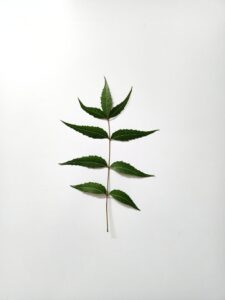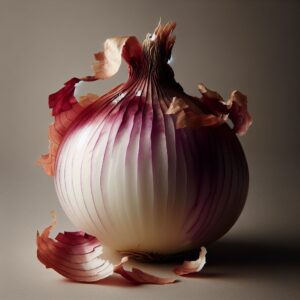
MEDICINAL HERBS
After giving birth, many new mothers experience hair loss. It’s a natural part of the postpartum journey, but it can be worrying. Fortunately, Mother Nature has provided us with a bounty of herbs that not only soothe the scalp but also promote healthy hair growth. Let’s explore some of the best herbs for managing postpartum hair loss and how to incorporate them into your hair care routine.
Best herbs for soothing the scalp for postpartum hair fall
When it comes to postpartum hair care, the goal is to nourish and soothe the scalp. This creates the optimal environment for hair to grow back strong and healthy. The herbs I’m about to introduce you to have been used for centuries to treat scalp conditions and encourage hair growth. They are natural, gentle, and effective, and you can easily use them at home.
Key Factors Contribiting to Scalp Health Postpartum
-
Hormonal changes can lead to an imbalance that affects scalp health.
-
Nutritional deficiencies post-birth can impact hair follicles and scalp condition.
-
Stress management is crucial as stress can exacerbate hair loss.
-
Gentle care is necessary to avoid further irritation to the sensitive postpartum scalp.
Understanding the signs of scalp irritation is essential in addressing postpartum hair loss. You might notice dryness, itchiness, or even redness. These symptoms can indicate that your scalp needs some extra TLC. And that’s where our herbal allies come into play.
Identifying the Signs of Postpartum Scalp Irritation
If you’re experiencing postpartum hair loss, pay attention to how your scalp feels. Are you finding flakes on your shoulders? Does your scalp itch more than usual? These can be signs that your scalp’s health needs attention. By identifying these symptoms early, you can choose the most effective herbs to soothe your scalp and mitigate hair loss.
Herbs offer more than just hair growth; they provide a holistic approach to scalp health. They can reduce inflammation, improve blood circulation, and provide essential nutrients directly to the hair follicles. This can result in not only less hair loss but also shinier, thicker, and more resilient hair growth.
For example, rosemary has been shown to perform as well as minoxidil, a common hair growth treatment, without the side effects like scalp itching. (Panahi et al., 2015)
Now, let’s dive into the specific herbs that can help you on your postpartum journey.
Lemon Grass
Lemongrass, with its fresh citrus scent, is not only uplifting but also a potent herb for scalp health. It has antifungal and antibacterial properties that can cleanse and soothe an irritated scalp. It’s also known to strengthen hair follicles, which is exactly what you need when dealing with postpartum hair loss.
-
To use lemongrass, steep it in boiling water to make a tea, then let it cool.
-
After shampooing, rinse your hair with the lemongrass tea for a soothing treatment.
Consistent use can lead to visible improvements in the health of your scalp and hair.

Lemongrass
Yarrow
Yarrow is a little-known but incredibly powerful herb for scalp health. It’s known for its anti-inflammatory properties, making it ideal for soothing irritated skin. If you’re dealing with a dry, itchy scalp postpartum, yarrow can be a game-changer.
To create a yarrow scalp rinse:
-
Simmer the dried herb in water for about 20 minutes.
-
Strain the liquid and let it cool before applying it to your scalp.
Use this rinse regularly to calm inflammation and promote a healthy scalp environment for hair growth.

Yarrow (Achillea millefolium)
Parsely
Parsley is another herb that’s not just for garnishing dishes; it’s a scalp savior for postpartum moms. Rich in vitamins and minerals, parsley can stimulate hair growth and balance oil production on the scalp.
Here’s how to use parsley for your scalp:
-
Chop fresh parsley finely and boil it in water for 20 minutes.
-
Strain the mixture and allow it to cool.
-
Use the liquid as a final rinse after shampooing.
This rinse can help rejuvenate the scalp and encourage healthy hair regrowth.

Parsley
Peppermint
Peppermint is more than a refreshing flavor; it’s a potent herb for stimulating the scalp. The menthol in peppermint can increase blood circulation to the scalp, which is vital for hair growth. It also has a cooling effect that can relieve an itchy scalp.
To harness the power of peppermint:
-
Brew a strong peppermint tea and let it cool.
-
After shampooing, pour the tea over your scalp as a refreshing rinse.
Regular use can lead to less hair loss and more vibrant hair.

Peppermint
Rosemary
Rosemary isn’t just a culinary herb; it’s a well-known hair growth stimulant. Its ability to improve circulation and its anti-inflammatory properties make it an excellent choice for postpartum hair care.
For a simple rosemary scalp treatment:
-
Boil dried rosemary in water, then let it steep until it cools.
-
Use the strained liquid as a hair rinse to stimulate the scalp and encourage hair growth.
With consistent use, you’ll notice your hair becoming stronger and more resilient. For more detailed guidance on natural remedies for postpartum hair loss, check out these 50 natural remedies for postpartum hair loss.

Rosemary | Drying rosemary
Lavender
Lavender is beloved for its calming scent, but it’s also a powerful herb for scalp health. It’s known for its ability to reduce stress, which can be a contributing factor to hair loss. Additionally, its anti-inflammatory properties help soothe the scalp.
To create a lavender-infused oil:
-
Gently heat dried lavender in a carrier oil like almond or coconut oil.
-
Let the mixture cool, then massage it into your scalp to promote relaxation and hair growth.
This oil can be a comforting part of your bedtime routine, setting the stage for a restful night and a healthy scalp.

Lavender
Coltsfoot
Coltsfoot may be less familiar, but it’s a hidden gem for hair care. It’s known for its ability to soothe the scalp and promote elasticity in the hair, preventing breakage.
To use coltsfoot:
-
Infuse dried coltsfoot leaves in boiling water.
-
Once cooled, apply the strained infusion to your scalp as a rinse.
Integrating coltsfoot into your hair care routine can lead to healthier, more elastic hair.

Coltsfoot (Tussilago farfara)
Calendula
Calendula, with its bright orange blossoms, is not just a pretty face. It’s a potent herb for healing the scalp. Its regenerative properties can help repair postpartum scalp damage and support hair growth.
For a calming calendula scalp treatment:
-
Steep calendula flowers in hot water, then strain and cool the infusion.
-
Use it as a rinse to soothe the scalp and strengthen hair from the roots.
Calendula is gentle enough for regular use and can be especially helpful for sensitive scalps.

Calendula
Summary
In the postpartum period, your body is recovering, and hair loss can be a distressing side effect. But with these natural herbs, including the refreshing tingle of peppermint, you have a powerful arsenal to soothe your scalp and encourage healthy hair growth. From the calming essence of lavender to other beneficial herbs, these natural remedies offer a gentle yet effective way to care for your scalp and hair.
Recap of Herbal Benefits for Postpartum Hair Care
Each herb we’ve discussed brings unique benefits to the table:
|
Herb |
Benefits |
|---|---|
|
Cleanses and strengthens hair follicles | |
|
Calms inflammation and soothes irritation | |
|
Stimulates growth and balances scalp oils | |
|
Increases circulation and cools the scalp | |
|
Stimulates growth and improves scalp health | |
|
Reduces stress and soothes the scalp | |
|
Promotes elasticity and soothes the scalp | |
|
Heals scalp damage and supports hair growth |
Remember, a personalized approach is key. Choose the herbs that best match your scalp’s needs, and don’t hesitate to combine them for a custom treatment. With patience and consistent care, you’ll see a difference in your hair’s health and vitality.
Personalized Approach: Choosing the Right Herbs for Your Needs
It’s essential to listen to your body and choose herbs that align with your specific needs. For severe postpartum hair loss, rosemary and peppermint are particularly effective due to their stimulating properties. If your scalp is more sensitive and irritated, calming herbs like lavender and calendula might be the best fit. Remember, the goal is to nurture your scalp back to health, allowing your hair to grow back naturally and strong.
Integrating These Herbs into a Holistic Postpartum Hair Care Regimen
While these herbs are powerful on their own, integrating them into a holistic care regimen will amplify their effects. This includes a balanced diet rich in proteins, vitamins, and minerals, managing stress through mindfulness or gentle exercise, and ensuring you’re getting enough rest. Combine these lifestyle factors with your herbal hair treatments, and you’re giving yourself the best chance at a full and speedy hair recovery postpartum.
FAQs
Which of These Herbs Is Best Suited for Severe Postpartum Hair Loss?
For those experiencing severe postpartum hair loss, rosemary and peppermint are top choices due to their ability to stimulate blood flow to the scalp, thereby promoting hair growth. These herbs are known for their invigorating properties and can be particularly effective when used consistently over time.
Are There Any Side Effects of Using Herbs on the Scalp?
Most herbs are gentle and safe for topical use, but it’s always wise to perform a patch test first to ensure you don’t have an allergic reaction. If you’re pregnant or breastfeeding, consult with a healthcare provider before using any herbal treatments, as some herbs can be absorbed through the skin and potentially affect milk supply or hormone levels.
How Long Should I Use These Herbal Treatments to See Results?
Patience is key when it comes to natural remedies. It can take several weeks or even months of consistent use to see significant results. Keep in mind that hair grows on average about half an inch per month, so regrowth will take time. Monitor your scalp’s health and hair growth over time to gauge the effectiveness of the treatments.
Can I Combine Different Herbs for a Custom Scalp Treatment?
Absolutely! Combining herbs can be a great way to maximize the benefits for your scalp and hair. For instance, blending rosemary and peppermint can stimulate hair growth while lavender can add a calming effect. Feel free to experiment with different combinations to find what works best for you.
Where Can I Purchase These Herbs in Their Purest Form?
You can find high-quality herbs at health food stores, natural pharmacies, or online from reputable suppliers. Look for organic herbs when possible to ensure they’re free from pesticides and other chemicals. Purchasing whole herbs and preparing them yourself is often the best way to ensure their purity and potency.
Remember, your postpartum body is going through many changes, and hair loss is a natural part of this process. By turning to the gentle power of herbs, you’re choosing a nurturing and natural way to support your body’s recovery. With a little time and care, you’ll be on your way to a healthy scalp and the return of those luscious locks.
Some of the best herbs for soothing scalp & reducing postpartum hair loss include fenugreek, which is high in antioxidants and can combat free radicals that damage the hair’s natural structure. Another great choice is ginger, known for its anti-inflammatory properties, which can help to improve circulation to the scalp and promote healthier hair growth. Additionally, rosemary has been used for centuries to help prevent hair thinning and loss, as it stimulates the hair follicles and increases blood flow.


